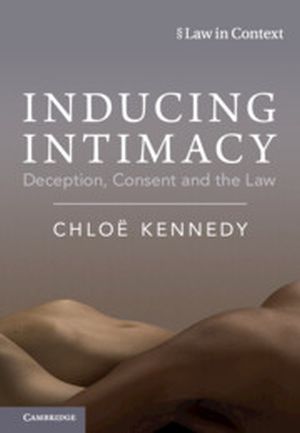
Kennedy presents a new way of evaluating the regulation of deceptively induced intimacy, that is, sex and sexual/romantic relationships, on the basis of an innovative genealogy of legal responses to this conduct.
This book traces the development of a range of civil and criminal laws across c. 250 years, showing how using deception to induce intimacy has been legally understood, compensated and punished. It offers an original interpretation of the form and function of these laws by situating them in their social and cultural contexts. It argues that prevailing notions of what makes intimacy valuable, including the role it plays in self-construction, have shaped and constrained the laws' operation. It shows how deceptively induced sex has come to be treated more seriously while the opposite is true of deceptively induced relationships and concludes by presenting a new framework for deciding whether and when deceptively induced intimacy should be regulated by law today.